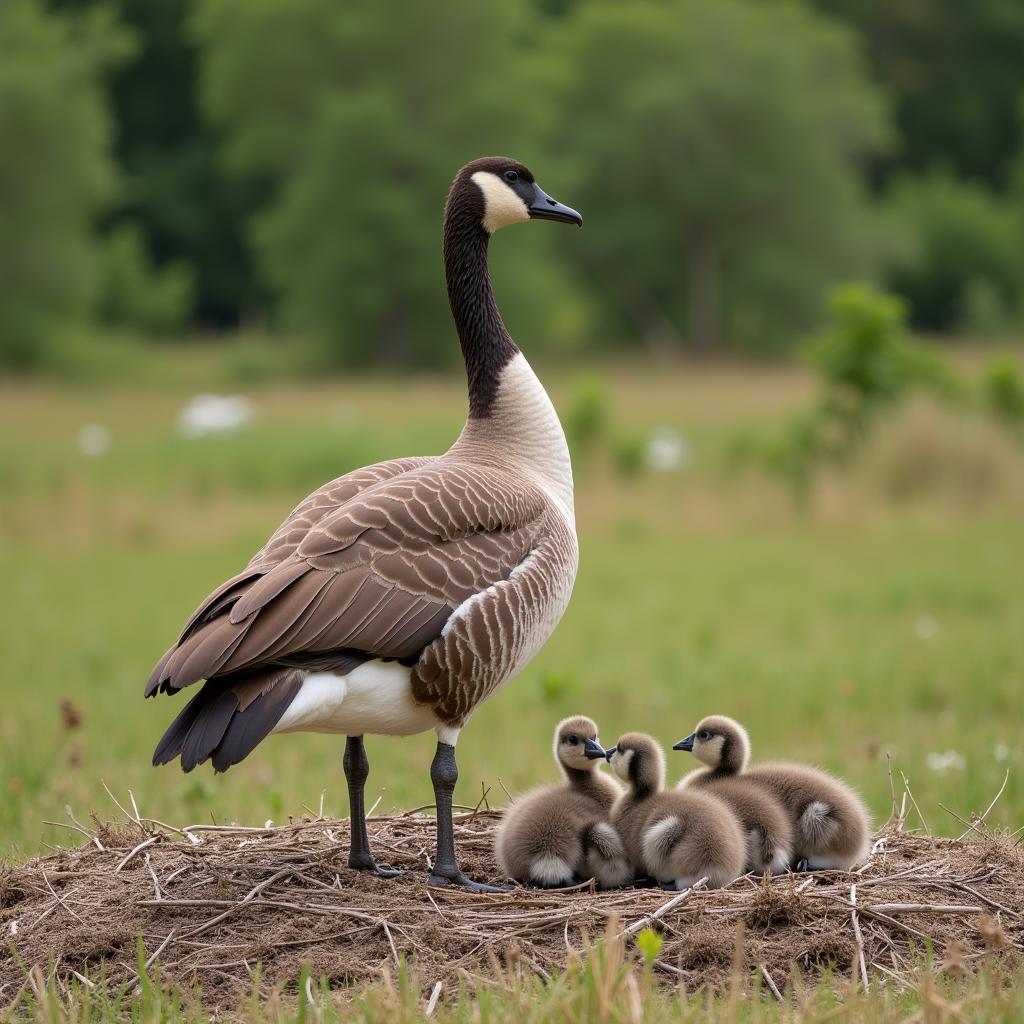Understanding African Geese Aggression
African geese are known for their striking appearance and assertive personalities. However, this assertiveness can sometimes be perceived as aggression. This article explores the reasons behind aggressive behavior in African geese, helping you understand their motivations and how to manage them effectively. We’ll delve into their territorial nature, protective instincts, and how these factors contribute to their sometimes confrontational demeanor. Learn more about the nuances of African goose behavior and discover why they’ve earned a reputation for being aggressive.
Decoding the Aggressive Behavior of African Geese
African geese, while beautiful and elegant, have a reputation for being aggressive. But is this aggression inherent, or is it a response to specific stimuli? The answer, as with most animal behavior, is multifaceted. Their aggressive displays, which often involve hissing, wing flapping, and charging, are not random acts of violence. They’re usually rooted in territorial defense, protecting their young, or establishing dominance within their social structure. Understanding these underlying causes is key to managing and mitigating their aggression.
Often, what appears as aggression is merely a protective instinct. African geese are fiercely devoted parents and will readily defend their offspring from perceived threats, including humans, pets, and even other geese. Their African goose range is their domain, and they will patrol it diligently.
Understanding the difference between true aggression and protective behavior requires careful observation. Is the goose hissing and charging at everyone, or only those who approach its nest or goslings? Context is key. By recognizing the triggers for their aggressive behavior, we can learn to co-exist peacefully with these fascinating birds.
Territoriality: A Key Driver of African Geese Aggression
African geese are highly territorial, especially during breeding season. They establish a defined area as their own and will defend it vigorously against intruders. This territoriality is a natural instinct, crucial for securing resources and protecting their young.
Their aggressive behavior is a way of communicating “stay away” to any potential threat. This can manifest in various ways, from loud hissing and honking to chasing and even biting. The intensity of the response often depends on the perceived level of threat and the individual goose’s temperament.
Within their own social group, African geese also establish a pecking order. This hierarchy dictates access to resources and mating opportunities. Aggressive displays play a role in establishing and maintaining this order. While these interactions might appear violent to an outside observer, they are a crucial part of their social dynamic.
 African Goose Territorial Defense
African Goose Territorial Defense
Are All African Geese Equally Aggressive?
While African geese have a reputation for aggression, it’s important to remember that not all individuals are equally aggressive. Just like humans, geese have individual personalities. Some are naturally more assertive than others. African goose male or female can also influence aggression levels, with ganders (males) often being more territorial, especially during breeding season.
Environmental factors also play a role. Geese raised in confined spaces or with limited resources may exhibit more aggressive behavior due to stress and competition. Similarly, geese that have had negative interactions with humans or other animals may become more defensive and prone to aggression. Understanding these factors can help predict and manage aggressive behavior.
How to Manage African Geese Aggression
Understanding the motivations behind African geese aggression is the first step towards managing it effectively. Avoid approaching their nests or young. Respect their space and give them a wide berth, especially during breeding season. If you must interact with them, do so calmly and confidently, avoiding sudden movements or loud noises that might startle them.
Dr. Amina Hassan, an ornithologist specializing in African waterfowl, notes, “African geese are not inherently aggressive. Their behavior is driven by instinct and the need to protect themselves and their young. By understanding their motivations, we can minimize conflict and appreciate these remarkable birds.”
Conclusion
African geese aggression, while sometimes intimidating, is a natural part of their behavior. By understanding the reasons behind their actions – territoriality, protection of young, and establishing social order – we can better manage their aggression and appreciate these fascinating birds for the intelligent and complex creatures they are. Remember to respect their space, especially during breeding season, and avoid approaching their nests or young. By understanding African geese and their behavior, we can foster a more harmonious relationship with these remarkable birds.
FAQ
- Are African geese dangerous?
- How can I tell if an African goose is about to attack?
- What should I do if an African goose attacks me?
- Can African geese be kept as pets?
- How can I make my property less attractive to African geese?
- What is the average lifespan of an African goose?
- Do African geese mate for life?
Need more assistance? Contact us! Phone: +255768904061, Email: [email protected] or visit us at Mbarali DC Mawindi, Kangaga, Tanzania. Our customer service team is available 24/7.
